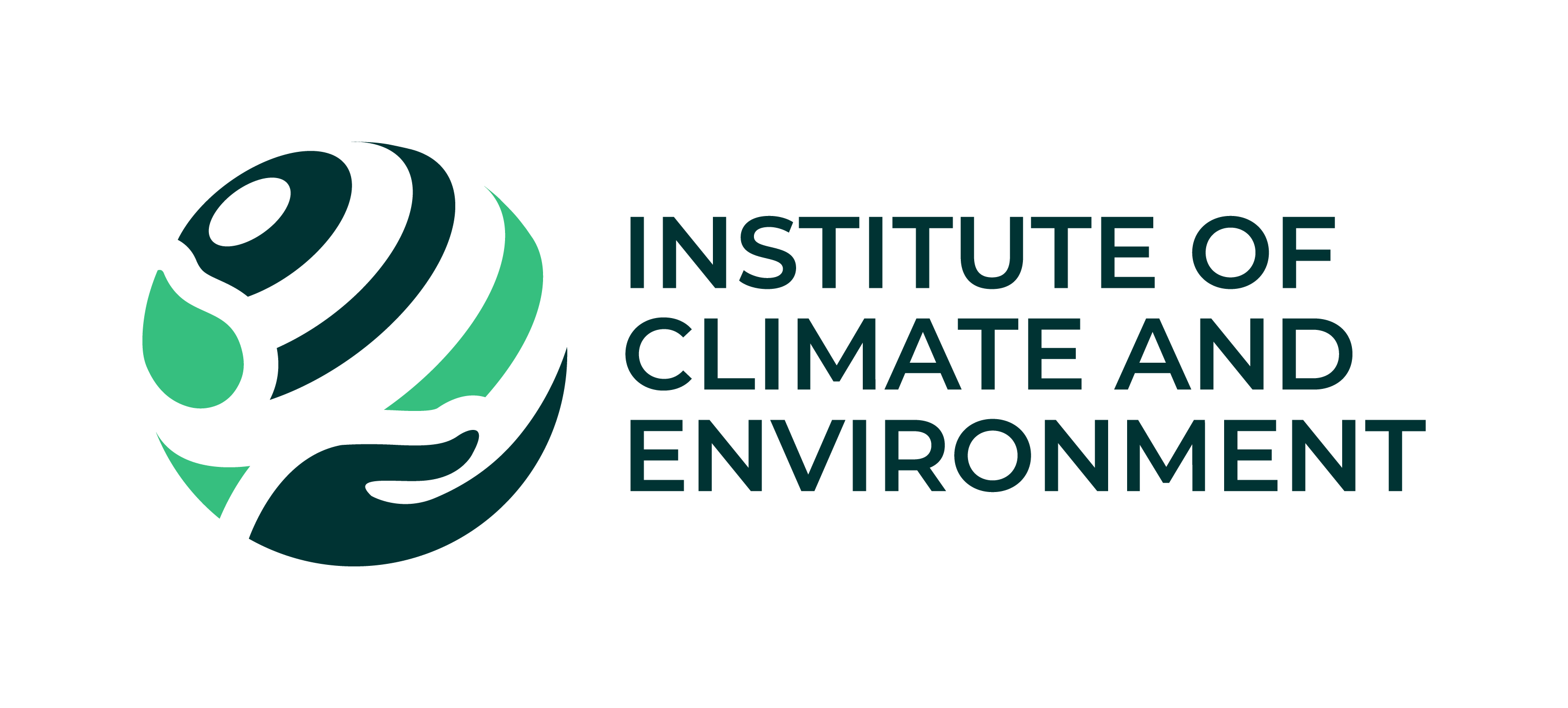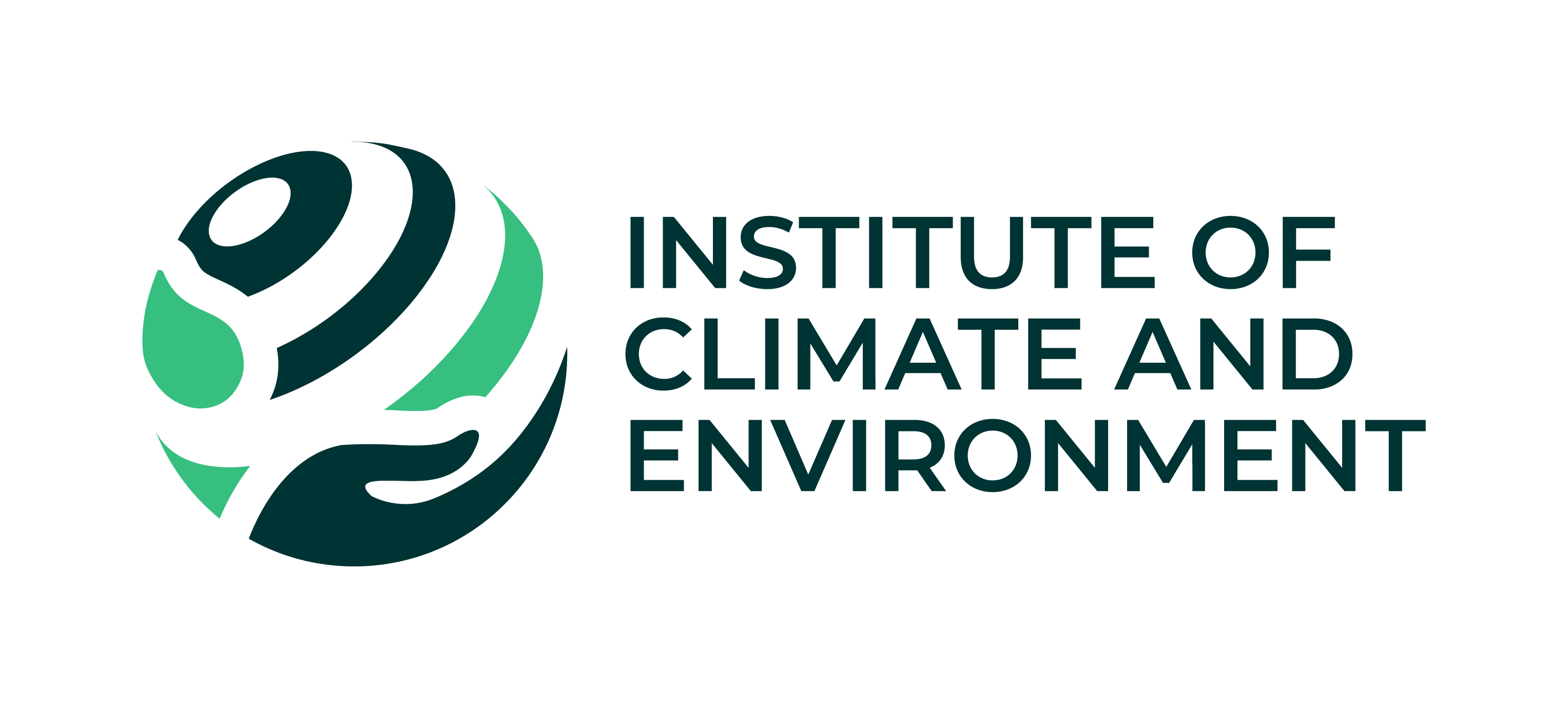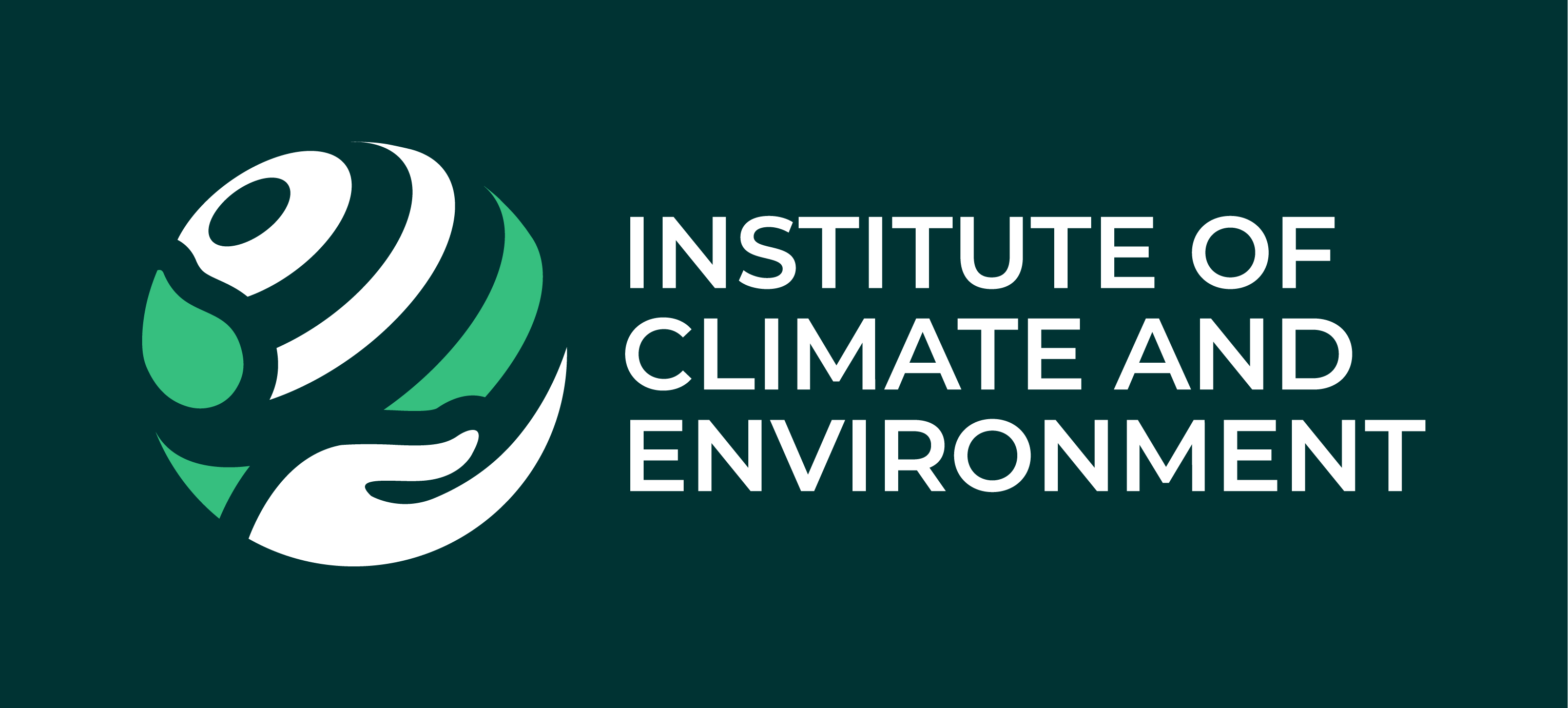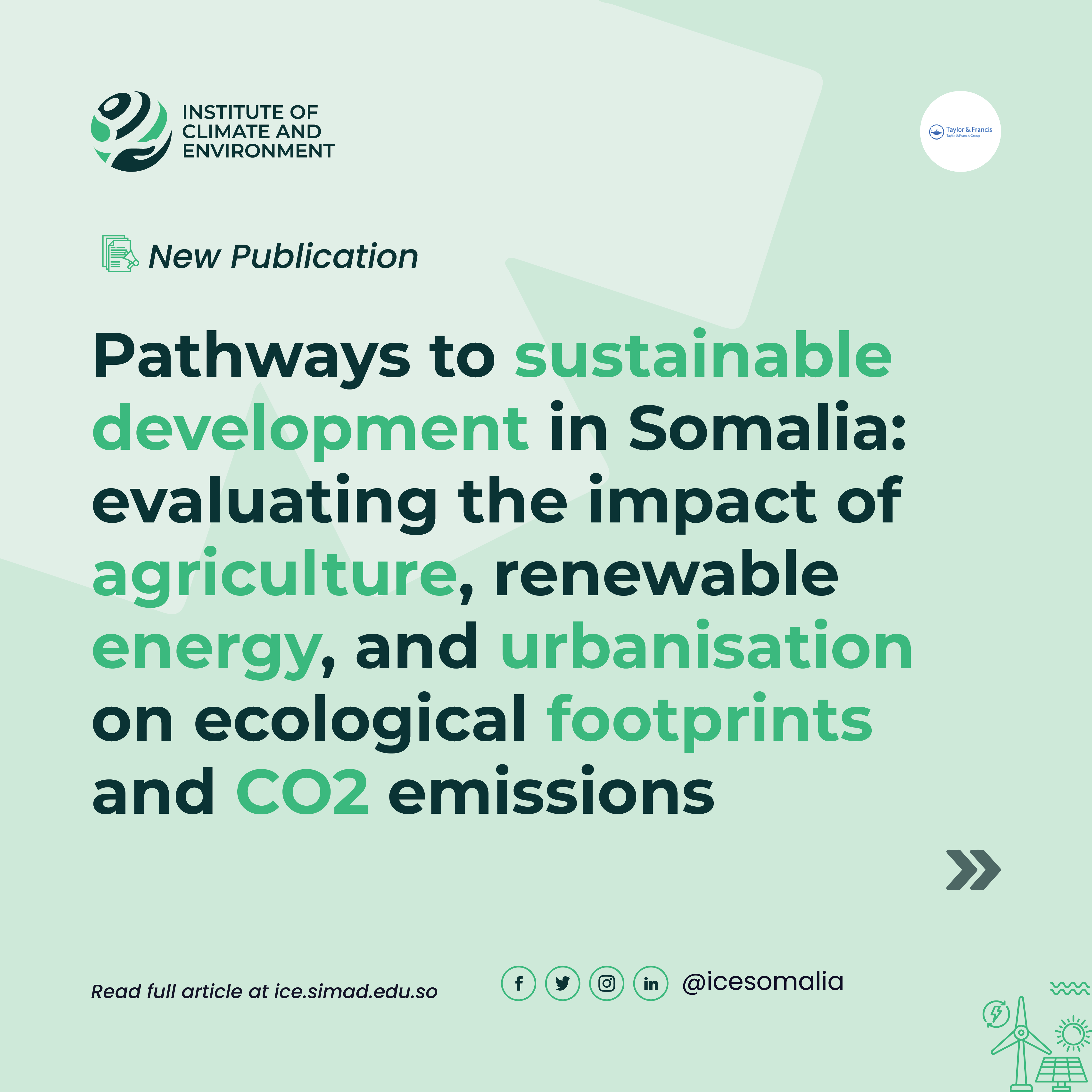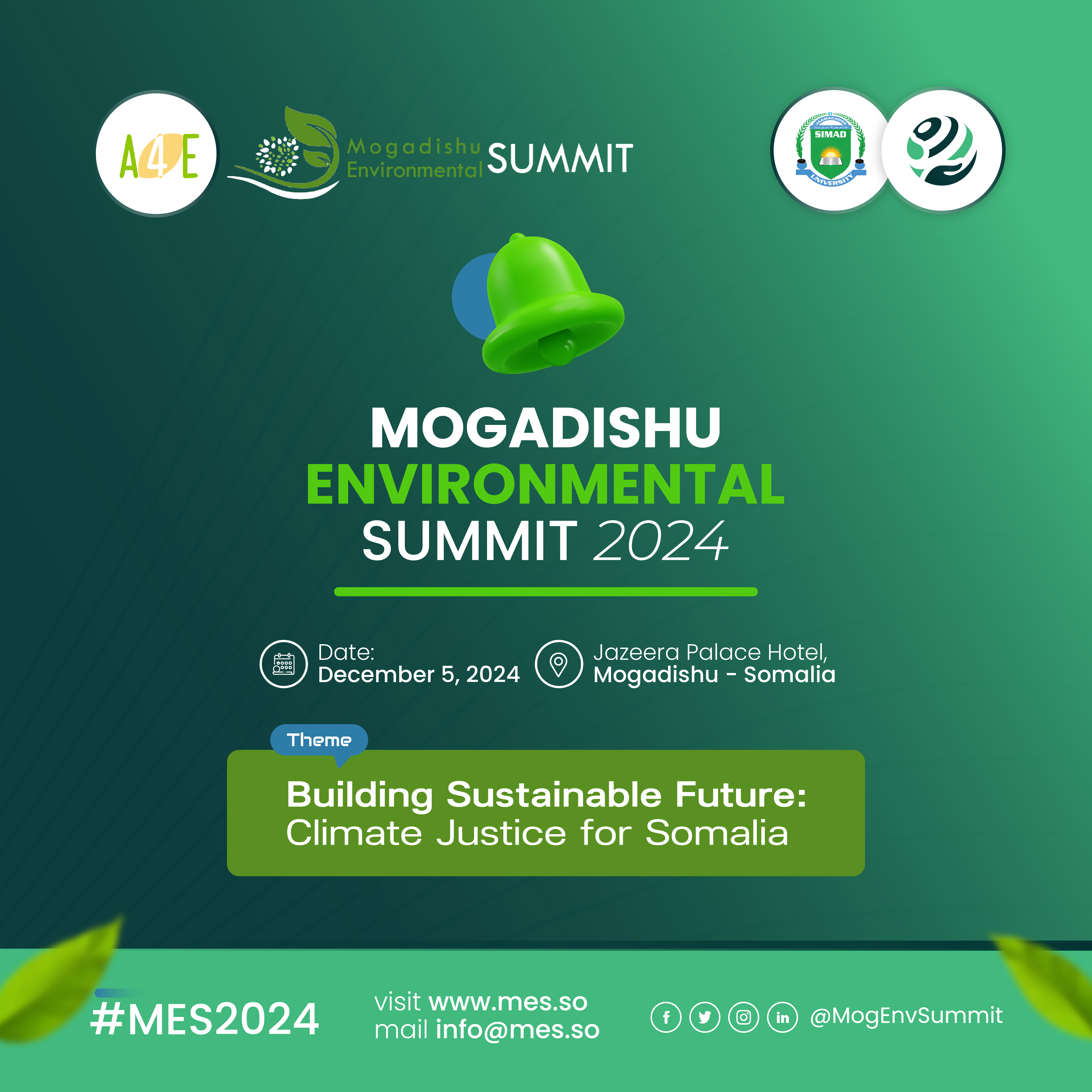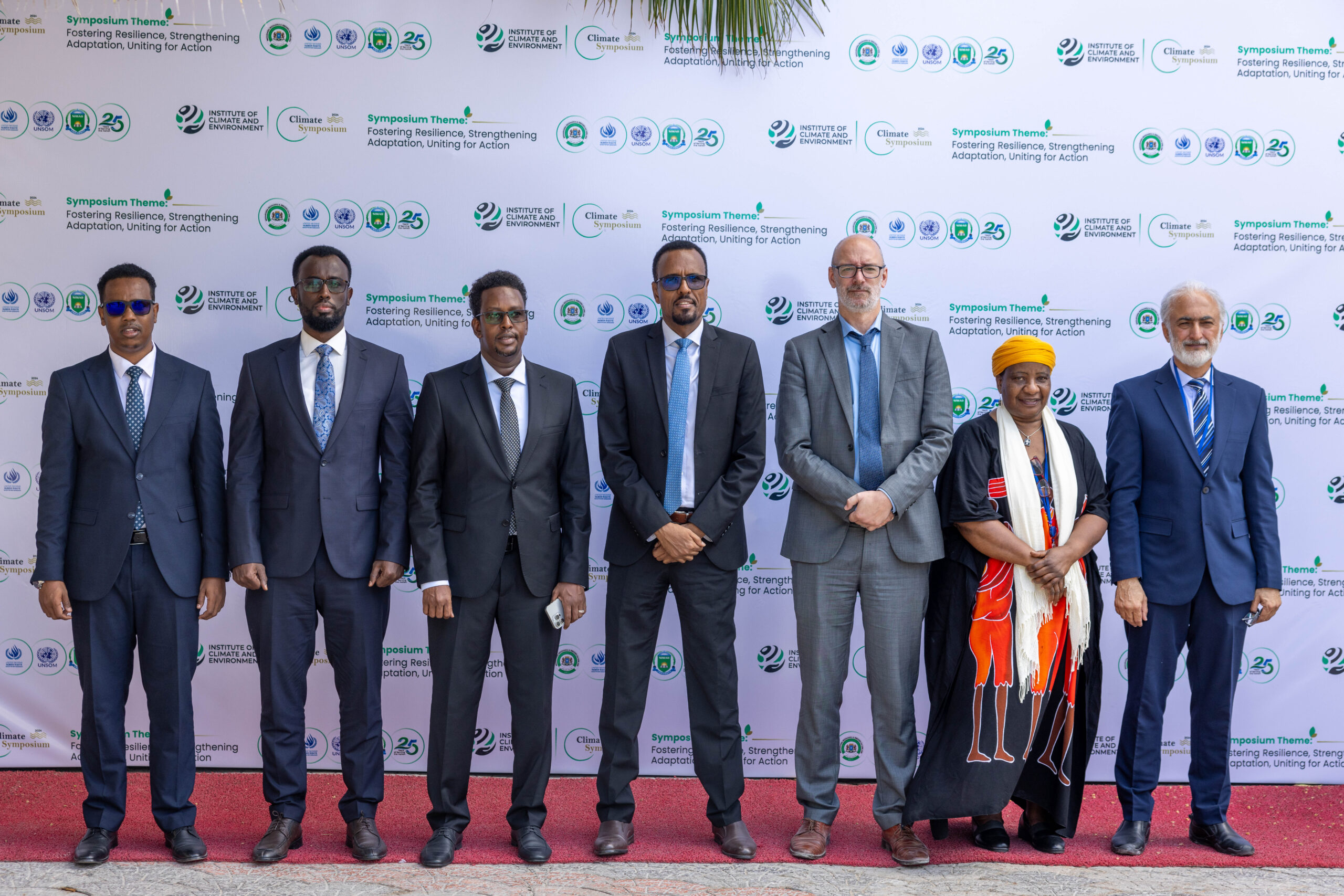Pathways to sustainable development in Somalia: evaluating the impact of agriculture, renewable energy, and urbanisation on ecological footprints and CO2 emissions
The paper investigates the environmental impacts of agriculture, renewable energy, economic growth, and urbanization on Somalia’s ecological footprints and CO2 emissions, using time-series data from 1990 to 2020. The findings reveal that while agriculture and renewable energy significantly reduce both ecological footprints and CO2 emissions in the long run, agri
ANNOUNCING THE MOGADISHU ENVIRONMENTAL SUMMIT 2024: A STEP TOWARDS CLIMATE JUSTICE FOR SOMALIA
We are honored to announce the Mogadishu Environmental Summit 2024, which will take place on December 5, 2024, at the Jazeera Palace Hotel in Mogadishu, Somalia. This year’s summit is themed “Building a Sustainable Future: Climate Justice for Somalia”, and will focus on addressing the environmental challenges currently facing the country while working towards su
Position Paper: Somalia Needs a New Paradigm for Inclusive Climate Action
INTRODUCTION Somalia is on the frontline of climate change, facing existential threats as its environmental systems crumble under the pressure of increasingly frequent and severe climate events. Somalia ranks high on the global climate index ND-GAIN. Even though its contribution to greenhouse gas emissions, is estimated less than 0.03% of the world’s total
The Climate Symposium Concludes with urgent call of Action
On 22nd September, The Climate Symposium held in Mogadishu brought together diverse voices and stakeholders, highlighting the urgency of addressing climate change in Somalia. With participants ranging from government officials and business leaders to youth activists and climate experts, the event aimed to drive locally-led climate solutions and explore the role of you
Announcing Mogadishu’s Largest Climate Gathering: The Climate Change Symposium 2024
In response to the urgent climate crisis facing Somalia, we are excited to announce the Climate Change Symposium 2024, set to take place on September 22, 2024. Hosted by the Institute of Climate and Environment (ICE) and the United Nations Support Office in Somalia (UNSOM), this landmark event will unite hundreds of diverse stakeholders for […]
Certification Ceremony: Empowering Youth for Climate Justice in Somalia
25th August 2024, Mogadishu – The ICE Institute at SIMAD University successfully concluded the Climate Justice Incubator, a groundbreaking initiative aimed at empowering young Somalis to become leaders in climate action and advocacy. The program, which ran from July 20th to August 28th, 2024, provided participants with a comprehensive curriculum covering Climate Jus
Somalia’s Young Innovators ignites locally-led Solution to protect people and planet
In a groundbreaking event for Somalia, the UNLEASH Hack Somalia, held on August 14-15, 2024, at SIMAD University, unveiled a series of innovative solutions designed to tackle the country’s most pressing environmental challenges. This inaugural hackathon, organized by the Institute of Climate Change and Environment (ICE) and sponsored by the United Nations Assistance
Examining the confluence of climate change and conflicts on agricultural and livestock exports in Somalia
Climate-induced extreme weather events and conflicts jointly contribute to disruptions in agricultural supply chains and destabilizing global food trade. Since the literature has identified that variations in climatic conditions hamper farming and animal raising, it is necessary to explore the consequences of climate change on crop and livestock exports to implement p
The Launch of Climate Justice Incubator Program
On July 20th, 2024, the ICE Institute proudly welcomed 120 young individuals selected to participate in the Climate Justice Incubator program. This event marked the beginning of a transformative journey for these aspiring climate leaders, who hail from over 10 universities in Mogadishu. The orientation and onboarding session was a significant moment, bringing together
Fireside chat: Beating Plastic Pollution: Lessons from around the world
A fireside chat event was held on June 27th by the ICE Institute (Institute of Climate and Environment) to discuss the global issue of plastic pollution. The director of the ICE Institute Mr. Okash gave the opening remarks to start off the event. Mr. Okash underlined how urgent it is to address plastic waste In the Somali […]
